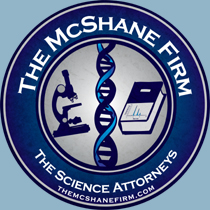When testing unknowns, we are doing precisely that. We will never know the true CONTENTS (in terms if a qualitative measure) of the sample, let alone the true value of the contents (in terms of the quantitative measure). By definition, all testing is about the tester’s willingness to accept the risk of being wrong most […]

Another thought about t0-olympic style
We have blogged before about t0 and the importance of knowing when it is in terms of retention time when we go to evaluate forensic chromatography results. You can read it again here: The importance of t0 in forensic chromatography T0 (provided that the area reject-think of how Josh made those peaks disappear in front […]

More on Enzymatic Assay for Determination of BAC in a forensic context
Enzymatic Immunoassay (EIA) is a quick and indirect means of determining ethanol content. It’s original development was strictly for the purposes of a very quick determination of whether or not there was the possibility that there was ethanol in a patient. It was designed for the clinical emergency environment where we need a very quick […]

The importance of t0 in forensic chromatography
If you are bored and want to have a little fun, call up your local crime laboratory, ask for someone who preforms their chromatography (it doesn’t matter if it is liquid chromatography or gas chromatography). When you get that person ask them a simple question: What’s the t0 (pronounced “t subzero”) for your method that […]

Even more on synthetic cannibnoids and synthetic cathinones
The unfortunate grandfather of the modern day push for synthetic cathinones products in the United States all started with legitimate scientific research and publishing by Dr. David E. Nichols, PhD of Purdue University in the Department of Medicinal Chemistry and Molecular Pharmacology. In the top tier publication Nature, he has lamented his legacy in “Legal highs: […]

An Update on Synthetic Cathinones and Synthetic Cannabinoids
“There are known knowns. These are things we know that we know. There are known unknowns. That is to say, there are things that we know we don’t know. But there are also unknown unknowns. There are things we don’t know we don’t know.” Truer words have not likely been spoken in the world of […]

Why per se Driving Under the Influence of Drug Based Prosecution is Not Scientific and How Probation Violations for Marijuana Use May Be Wrong
I cannot imagine that a single rational and sane person cares for drug impaired drivers to be on the road among us driving what amounts to a guided missile weighing about 3,000 to 5,500 pounds or more. As has been shown time and again, a drug intoxicated driver can be a weapon of mass destruction. […]

Guest Blog Post From Dr. Frederic Whitehurst PhD JD: Of moos and clucks-the myth of FTIR identification
Of moos and clucks-the myth of FTIR identification By: Frederic Whitehurst, J.D., Ph.D. [1] OK, so we will now discuss moos and clucks. Which is the basis for the problem with Fourier Transform Infrared Spectroscopy (FTIR) in forensic science. [2] If you close your eyes in a stock yard you can’t tell what moo came […]

Zero is not a valid data point for calibration purposes
When the quantitative measurement really matters to determine guilt, we have to understand how that measurement is achieved. In the case of the analysis of biological samples that are tested, quantitation of an unknown is derived from a calibration curve. The proper construction of the calibration curve is a crucial component of quality control. It […]

Guest Blog Post From Dr. Frederic Whitehurst PhD JD: Circuitous thought-the myth of reliable and valid marijuana identification in the courtroom
Circuitous thought-the myth of reliable and valid marijuana identification in the courtroom By: Frederic Whitehurst, J.D., Ph.D. [1] As scientists we all agree that the hallmarks of science are validity and reliability. What do we mean by that? Well, the government scientist has to agree that his method of answering a question put to him […]

Guest Blog Post From Dr. Frederic Whitehurst PhD JD: On sampling when testing multiple packets
Sampling Crime: On sampling when testing multiple packets By: Frederic Whitehurst, J.D., Ph.D. [1] If we accept that forensic crime laboratories are completely overwhelmed, understaffed, underequipped, and exhausting environments in which to function, we see reality. Despite political rhetoric to the contrary, there has been little, if any, relief for those folks in crime labs […]


